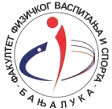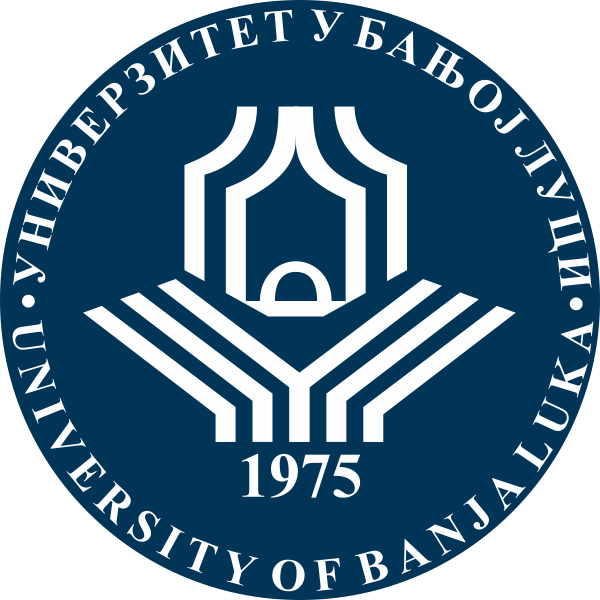SportLogia
Vol. 19, Broj 1, Decembar 2023.
RELACIJE KVALITETA ODNOSA TRENER- SPORTISTA I PSIHOSOCIJALNOG FUNKCIONISANJA SPORTISTA: SISTEMATSKI PREGLEDNI RAD
Nikolina Kuruzović i Valentina Đorić
Fakultet za sport i psihologiju, Univerzitet Educons, Novi Sad, Srbija
Stručni članak
DOI: 10.7251/SGIA2319002K
UDK: 796.332-054.65:159.98
Sažetak
Urođena tendencija formiranja socijalnih odnosa se reflektuje i u domenu sporta. Sport je značajni kontekst upoznavanja drugih, formiranja i održavanja odnosa. Osnovni cilj ovog naučnog rada jeste pregled i interpretacija rezultata istraživanja na temu kvaliteta odnosa trener-sportista i psihosocijalnog funkcionisanja sportista. Prateći instrukcije protokola za sistematske pregledne radove i meta-analizu PRISMA, pretražili smo nekoliko elektronskih baza naučnih radova i uključili ukupno 56 naučna rada u dalju obradu. Rezultati ukazuju na nekoliko aspekata psihosocijalnog funkcionisanja sportista koji su povezani sa odnosom trener-sportista. Ukazano je da pozitivni odnos sa trenerom doprinosi različitim aspektima motivacije i zadovoljstva sportista što se reflektuje u višem nivou njihovih performansi i želji da se nastavi sa sportskim aktivnostima. Takođe je primećeno da bolji odnos sa trenerom štiti sportiste od stresa, sagorevanja i negativnih emocionalnih stanja čime se čuva njihovo mentalno zdravlje. Osim toga, odnos sa trenerom usmerava način na koji sportista posmatra sebe, trenera i ceo tim. Rezultati naglašavaju jedinstven doprinos koji ima odnos trener-sportista u životu i radu sportiste, što može poslužiti kao vodič za dalja istraživanja i praksu u sportu.
Ključne riječi: sport, odnos trener-sportista, psihosocijalno funkcionisanje sportista, PRISMA.
Literatura
Ada, E.N., Comoutos, N., Ahmad, H., Yildiz, R., Jowett, S., & Kazak, Z. (2021). The Coach-Athlete Relationship and Self-talk in Turkish Athletes. Sustainability, 13(11), 5764.
Adie, J.W., Duda, J.L., & Ntoumanis, N. (2008). Autonomy support, basic need satisfaction and the optimal functioning of adult male and female sport participants: A test of basic needs theory. Motivation and emotion, 32, 189-199.
Adie, J.W., & Jowett, S. (2010). Meta-Perceptions of the coach-athlete relationship, achievement goals, and intrinsic motivation among sport participants. Journal of Applied Social Psychology, 40(11), 2750-2773.
Alfermann, D., Geisler, G., & Okade, Y. (2013). Goal orientation, evaluative fear, and perceived coach behavior among competitive youth swimmers in Germany and Japan. Psychology of Sport and Exercise, 14, 307-315.
Antonini Phillipe, R., & Seiler, R. (2006). Closeness, co-orentation and complementarity in coach-athlete relationship: What male swimmers say about their male coaches. Psychology of Sport and Exercise, 7(2), 159-171.
Aunolaa, K., Sorkkilaa, M., Viljarantab, J., Tolvanena, A., & Ryba, T.V. (2018). The role of parental affection and psychological control in adolescent athletes' symptoms of school and sport burnout during the transition to upper secondary school. Journal of Adolescence, 69, 140-149.
Berndt, T.J. (1996). Exploring the effects of friendship quality on social development. In: W.M. Bukowski, A.F. Newcomb, & W.W. Hartup (Eds.), The Company They Keep: Friendship in Childhood and Adolescence (346-365). Cambridge, England: Cambridge University Press.
Berscheid, E. i Reis, H. T. (1998). Attraction and close relationships. In: D.T. Gilbert, S.T. Fiske, & G. Lindzey (Eds.), The Handbook of Social Psychology (193-281). New York: McGraw-Hill.
Bois, J.E., Lalannem, J., & Delforge, C. (2009). the influence of parenting practices and parental presencde of children's and adolescents' pre-competitive anxiety. Journal of Sports Sciences, 27(10), 995-1005.
Carr, S. (2010). Adolescent-parent attachment characteristics and quality of youth sport friendship. Psychology of Sport and Exercise, 10, 653-661.
Carron, A.V., Bray, S.R., & Eys, M.A. (2002). Team cohesion and team success in sport. Journal of Sports Sciences, 20(2), 119-126.
Chan, D. K. C., Keegan, R. J., Lee, A. S. Y., Yang, S. X., Zhang, L., Rhodes, R. E., & Lonsdale, C. (2018). Toward a better assessment of perceived social influence: The relative role of significant others on young athletes. Scandinavian Journal Medicine and Science in Sports, 29, 286-298.
Cho. S., & Baek, W. (2020). Coach-autonomy support and youth sport team efficacy mediated by coach-athlete relationship. Social Behavior and Personality, 41(1), 1547-1556.
Choi, H., Cho, S., & Huh, J. (2013). The association between the perceived coach-athlete relationship and athletes' basic psychological needs. Social behavior and personality, 48(2), 1-9.
Clarke, N.J., Harwood, C., & Cusion, C.J. (2004). A phenomenological interpretation of the parent-child relationship in elite youth football. Sport, Exercise, and Performance Psychology, 5(2), 125-143.
Côte, J. (1999). The influence of the family in the development of talent in sport. Sport Psychologist, 13(4), 395-417.
Davis, L., & Jowett, S. (2010). Investigating the interpersonal dynamics between coaches and athletes based on fundamental principles of attachment. Journal of Clinical Sport Psychology, 4, 112-132.
Eys, M., Bruner, M., & Martin, L. (2019). The dynamic group environment in sport and exercise. Psychology of Sport and Exercise, 42, 40-47
Felton, L., & Jowett, S. (2013). Attachment and well-being: The mediating effects of psychological needs satisfaction within the coach-athlete and parent-athlete relational contexts. Psychology of Sport and Exercise, 14(1), 57-65.
Gardner, L.A., Magee. C.A., & Vella, S.A. (2016). Social climate profiles in adolescent sports: Associations with enjoyment and intention to continue. Journal of Adolescence, 52, 112-123.
Gencer, E., & Öztürk, A. (2018). The relationship between the sport-confidence and the coach-athlete relationship in student-athletes. Journal of Education and Training Studies, 6(10), 7-14.
Güllü, S. (2019). The effect of the coach-athlete relationship on passion for sports: The case of male handball players in super league. Journal of Education and Training Studies, 7(1), 38-47.
Jackson, B., & Beauchamp, M.R. (2010). Efficacy beliefs in coach-athlete dyads: Prospective relationships using actor-partner interdependence models. Applied Psychology: An International Review, 59(2), 220-242.
Jõesaar, H., Hein, V., & Hagger, M.S. (2011). Peer influence on young athletes' need satisfaction, intrinsic motivation and persistence in sport: A 12-month prospective study. Psychology of Sport and Exercise,
Jowett, S. (2005). Partners on the sport field: The coach-athlete relationship, The Psychologist, 18, 412-415.
Jowett, S., Adie, J. W., Bartholomew, K. J., Yang, S. X., Gustafsson, H., & Lopez-Jimenez, A. (2017). Motivational processes in the coach-athlete relationship: A multicultural self-determination approach. Psychology of Sport and Exercise, 32, 143-152.
Jowett, S., & Chaundy, V. (2004). An investigation into the impact of coach leadership and coach-athlete relationship on group cohesion. Group Dynamics Theory Research and Practice, 8(4), 302-311.
Jowett, S., & Cramer, D. (2010). The prediction of young athletes' physical self from perceptions of relationships with parents and coaches. Psychology of Sport and Exercise, 11, 140-147.
Jowett, S., Lafrenière, M.K., & Vallerand, R. J. (2012). Passion for activities and relationship quality: A dyadic approach. Journal of Social and Personal Relationships, 30(6), 734-749.
Jowett, S., & Nezlek, J. (2011). Relationship interdependence and satisfaction with important outcomes in coach-athlete dyads. Journal of Social and Personal Relationships, 29(3), 287-301.
Jowett, S., & Shanmugam, V. (2016). Relational coaching in sport: Its psychological underpinnings and practical effectiveness. In: R. Schinke, K.R. McGannon, & B. Smith (Eds.), Routledge International Handbook of Sport Psychology (471-484). Routledge/Taylor & Francis Group.
Kelley, H.H., Berscheid, E., Christensen, A., Harvey, J.H., Huston, T.L., Levinger, G., McClintock, E., Peplau, L.A., & Peterson, D. (1983). Analyzing close relationships. In: H.H. Kelley, E. Berscheid, A. Christensen, J.H. Harvey, T.L. Huston, G.E. Levinger, E. McClintock, L.A. Peplau, & D. Peterson, (Eds.), Close Relationships: Development and Change (20-67). New York: Freeman.
Lu, F.J.H., Lee, W.P., Chang, Y., Chou, C., Hsu, Y., Lin, J., & Gill, D.L. (2016). Interaction of athletes' resilience and coaches' social support on the stress-burnout relationship: A conjunctive moderation perspective. Psychology of Sport and Exercise, 22, 202-209.
Mortiz, S.E., Felt, D.L., Fahrbak, K.R., & Mack, D.E. (2000). The relation of self-efficacy measures to sport performance: A meta-analytic review. Research Quarterly for Exercise and Sport, 71(3), 280-294.
Pacewicz, C.E., Smith, A.L., & Raedekec, T.D. (2020). Group cohesion and relatedness as predictors of self-determined motivation and burnout in adolescent female athletes. Psychology of Sport & Exercise, 50, 1-8.
Powers, M., Fogaca, J., Gurung, R.A.R., & Jackman, C.M. (2020). Predicting student-athlete menthal health: Coach-athlete relationship. Journal of Psychological Research, 25(2), 172-180.
Rutten, E.A., Schuengel, C., & Dirks, E. (2011). Predictors of antisocial and prosocial behavior in an adolescent sports context. Social Development, 20(2), 294-315.
Scanlan, T.K., Russell, D.G., Beals, K.P., & Scanlan, L.A. (2003). Project of elite athlete commitment: A direct test and expansion of the sport commitment model with elite amateur sportsmen. Journal of Sport & Exercise psychology, 25(3), 377-401.
Scoffier, S., Maıano, C., & d'ArripeLongueville, F. (2010). The effects of social relationships and acceptance on disturbed eating attitudes in elite adolescent female athletes: The mediating role of physical self-perceptions. International Journal of Eating Disorders, 43, 65-71.
Scott, C.L., Plateau, C.R., & Haycraft, E. (2020). Teammate influences, psychological well-being, and athletes' eating and exercise psychopathology: A moderated mediation analysis. International Journal of Eating Disorders, 53, 564-573.
Shapiro, D.R., & Martin, J.J. (2014). The relationships among sport self-perceptions and social well-being in athletes with physical disabilities. Disability and Health Journal, 7, 42-48.
Stein, J., Bloom, G.A., & Sabiston, C. (2012). Influence of perceived and preferred coach feedback on youth athletes' perceptions of team motivational climate. Psychology of Sport and Exercise, 13, 484-490.
Sukys, S., Lisinskiene, A., & Tilindiene, L. (2015). Adolescents' participation in sport activities and attachment to parents and peers. Social Behavior and Personality, 43(9), 1507-1518.
Uchino, B.N. and Reblin, M. (2009). Health and relationships. In: H.T. Reis, & S. Sprecher (Eds.), Encyclopedia of Human Relationships (792-797). Thousand Oaks: Sage Publications.
Ullrich-French, S., & Smith, A.L. (2006). Perceptions of relationships with parents and peers in youth sport: Independent and combined prediction of motivational outcomes. Psychology of Sport & Exercise, 7, 193-214.
Vazou, S., Ntoumanis, N., & Duda, J. (2006). Predicting young athletes' motivational indices as a function of their perceptions of the coach-and-peer-created climate. Psychology of Sport and Exercise, 7(2), 215-233.
Zhang, Z., & Chelladurai, P. (2013). Antecedents and consequences of athlete's trust in the coach. Journal of Sport and Health Science, 2, 115-121.
Yang, S. X., Jowett, S., & Chan, D. K. C. (2014). Effects of big-five personality traits on the quality of relationship and satisfaction in Chinese coach-athlete dyads. Scandinavian Journal Medicine and Science in Sports, 25, 568-580.
Wall, J.M., Baugh, L.M., Pradhana, K., Beauchamp, M.R., Marshall, S.K., & Young, R.A. (2019). The coach-parent relationship in Canadian competitive figure skating: An interpretitive
Primljeno: 9.8.2023.
Odobreno: 5.10.2023.
Korespodencija:
Valentina Đorić
istraživač, asistent
21000 Novi Sad, Srbija




